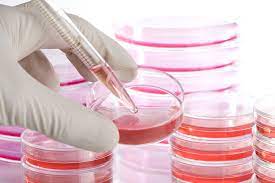What is Regenerative Medicine?
 Regenerative medicine is a field of medicine that is trying to replace damaged cells, tissues, and organs with new ones. It aims to help patients regain normal function and prevent further damage by replacing damaged cells or tissues. It can help treat multiple diseases and provide a long-term solution to chronic conditions.I strongly suggest you to visit regenerative medicine near me to learn more about this.
Regenerative medicine is a field of medicine that is trying to replace damaged cells, tissues, and organs with new ones. It aims to help patients regain normal function and prevent further damage by replacing damaged cells or tissues. It can help treat multiple diseases and provide a long-term solution to chronic conditions.I strongly suggest you to visit regenerative medicine near me to learn more about this.
Regenerative medicine is a growing field of multidisciplinary research. The goal of this field is to repair or replace damaged tissues and organs through a variety of techniques, including tissue engineering, cellular therapies, and even artificial organs. In 1992, Dr. Leland Kaiser, a recognized futurist and authority on how the American healthcare system might change, mentioned regenerative medicine in his book, “The Future of Multihospital Systems”. Since then, research on regenerative medicine has advanced considerably, bringing together experts in different fields.
One important area of regenerative medicine is the use of stem cells to repair organs or tissues that are in poor health. This is an essential step in the development of regenerative medicine. While stem cells are vital for repairing tissue, they can also be used to replace organs. Understanding the molecular mechanisms of regeneration is key to advancing regenerative medicine.
Regenerative medicine also involves the growing of organs and tissues in the laboratory. It is a revolutionary field of medicine that can be used for patients who cannot heal themselves. It has great potential to save lives by replacing lost organ parts with new ones created from the patient’s own cells. This method avoids the problems associated with organ transplant rejection and eliminates the need for donor organs.
Despite the potential benefits of regenerative medicine, it is still a long way from becoming a mainstream treatment. While there are already a few FDA-approved products, regenerative medicine products are still in their infancy. The FDA is required to review each product and approve them before they are approved. The FDA has also developed a program called MedWatch Adverse Event Reporting that provides information to patients.
One area of regenerative medicine is stem cell and platelet-rich plasma therapy. These therapies concentrate the body’s own healing agents and accelerate the body’s healing response. This process can help patients avoid surgery and reduce pain and discomfort. In addition, regenerative medicine treatments are quick and convenient, allowing patients to get back to their daily lives after treatment.
One recent breakthrough in regenerative medicine is the ability to reprogram adult stem cells to behave like embryonic stem cells. Induced pluripotent stem cells, also known as iPS cells, can be transformed into any tissue of the body. This allows for novel models for diseases and conditions in humans.
Although these therapies aren’t fully developed yet, they show great promise in treating various types of diseases and conditions. They can potentially replace damaged organs and tissues and can even normalize congenital conditions. Some regenerative medicine treatments have already received FDA approval for wound healing and are commercially available.
CONTACT INFO :
QC Kinetix (Plano)
6000 Spring Creek Parkway, Suite 120
Plano, TX 75024
Phone No. :(972) 972-8610